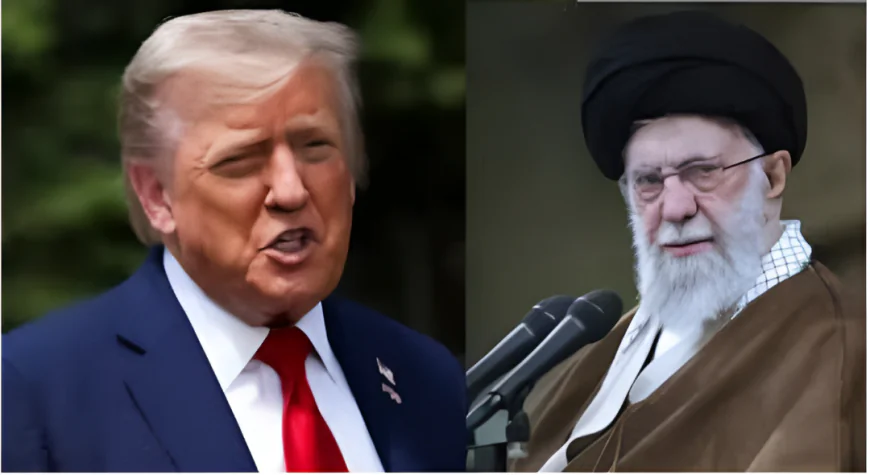Khamenei Warns U.S. After Iran Nuclear Strikes: “Grave Mistake, Must Be Punished”
Iran’s Supreme Leader Ayatollah Khamenei calls U.S. strikes on nuclear facilities a “grave mistake” and signals broader retaliation against Israel and possible U.S. targets in the Middle East.

The Iran’s Supreme Leader Ayatollah Ali Khamenei has issued a stern warning following U.S. military strikes on key Iranian nuclear facilities, declaring the attack a “grave mistake” and pledging retaliation.
In remarks aired by state-run media, Khamenei accused both the United States and Israel of orchestrating a destabilizing act of aggression. He said the response is already underway and suggested further reprisals may follow.
“It must be punished, and it is being punished right now,” Khamenei stated.
The U.S. launched coordinated airstrikes using B-2 bombers and Tomahawk missiles on nuclear sites at Fordow, Natanz, and Isfahan earlier this week. The strikes were reportedly aimed at halting Iran’s rapidly advancing uranium enrichment program.
Khamenei’s Warning: U.S. Assets Not Off Limits
Khamenei specifically warned that continued U.S. interference would broaden Iran’s list of “legitimate targets,” suggesting that American military installations and interests across the Middle East could come under threat.
He also criticized former U.S. President Donald Trump—who authorized the strike—for aligning with what he called the “Zionist enemy,” referring to Israel.
Tehran’s Strategy: Escalate to De-escalate
Despite the severity of the airstrikes, Iranian sources say Tehran’s leadership is planning a measured response. The strategy, according to insiders, is to escalate tensions just enough to deter further attacks, while avoiding a full-scale war.
Iran’s Islamic Revolutionary Guard Corps (IRGC) has already launched missile strikes on Israeli territory. Analysts believe Tehran may also consider:
-
Temporarily closing the Strait of Hormuz
-
Cyber operations against infrastructure
-
Activating proxy forces across the region
Global Implications: Oil and Stability at Risk
The airstrikes and Iran’s response have had immediate global consequences. Oil prices have surged due to fears of disruptions in the Strait of Hormuz, a key route for global energy supply. Iran has also reportedly increased cyber-defense alerts and military readiness in strategic zones.
What This Means:
|
Focus Area |
Details |
|
Retaliation Path |
Iran targets Israel but warns U.S. could be next |
|
Messaging |
Khamenei paints U.S. as aggressor, not neutral arbiter |
|
Strategic Tools |
Missiles, maritime leverage, cyber warfare, regional proxies |
|
Escalation Risk |
Prolonged U.S. involvement could trigger wider regional conflict |
Khamenei’s response has deepened tensions in an already volatile region. As the world watches closely, the situation teeters between limited retaliation and broader escalation. The coming days will test the balance of power—and the ability of diplomacy to pull back from the brink.


